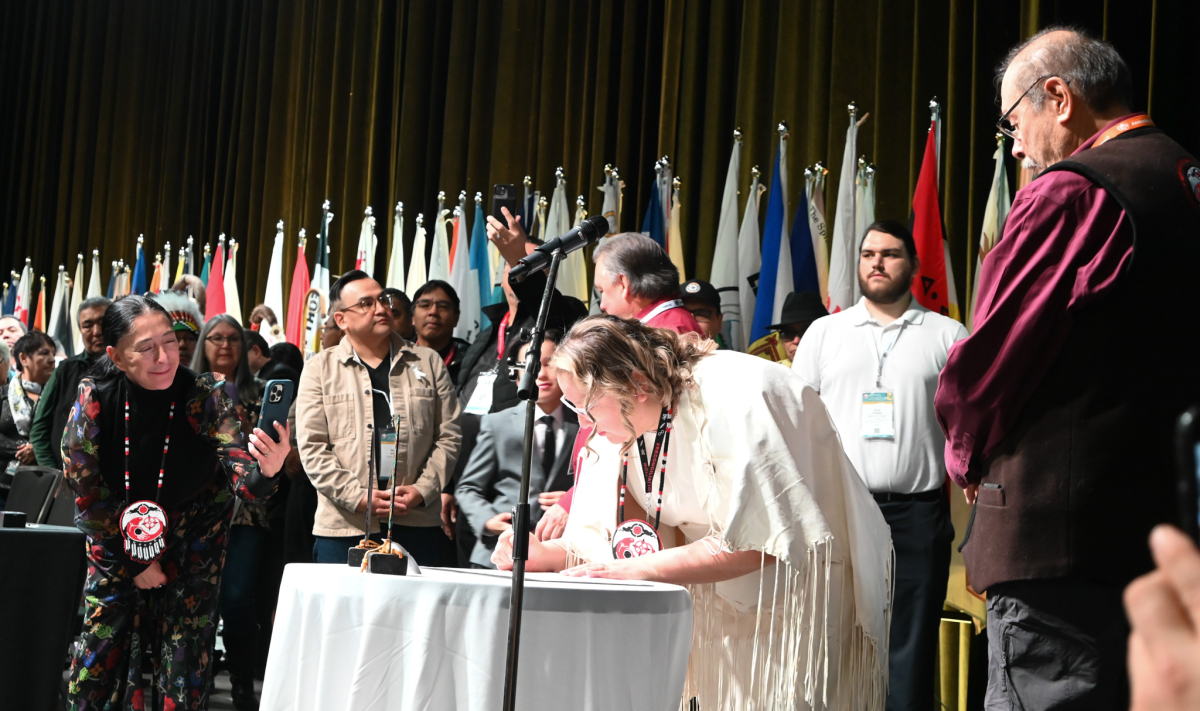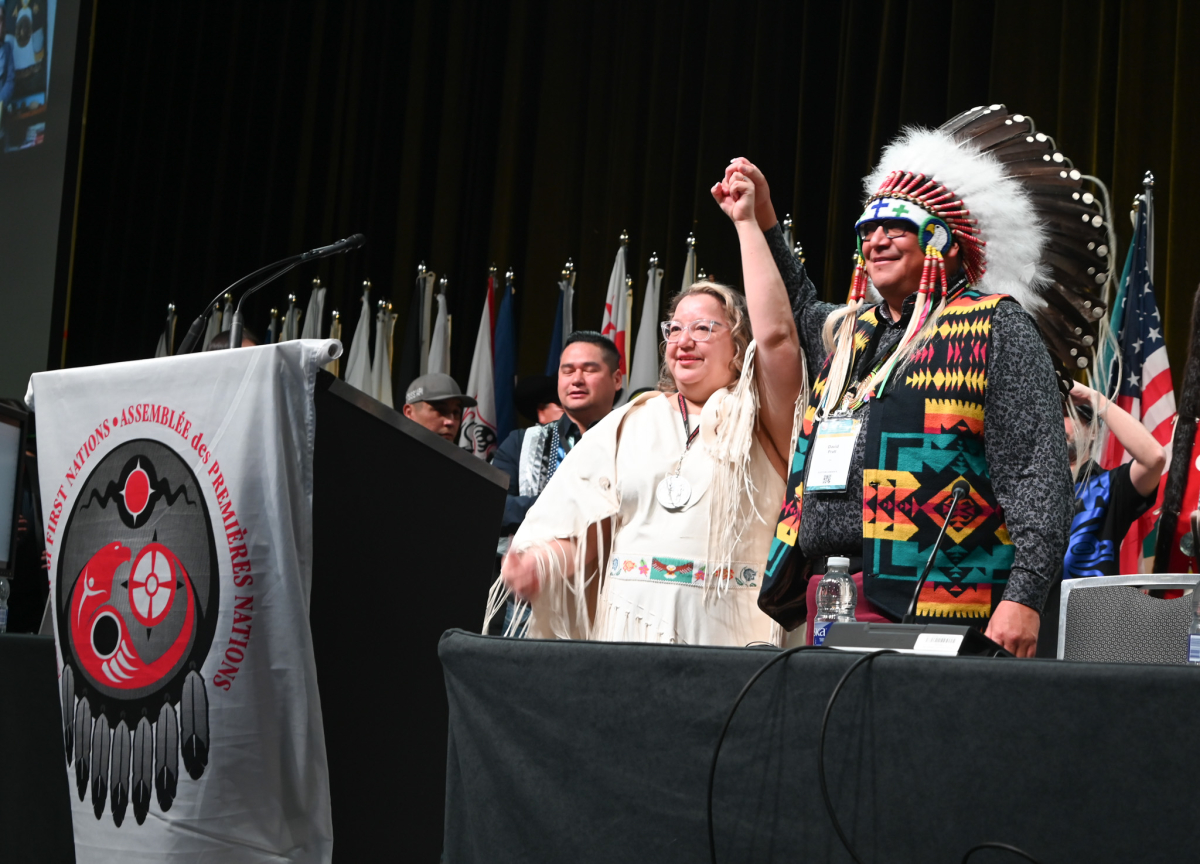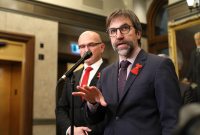Support strong Canadian climate journalism for 2025
Cindy Woodhouse was elected the new national chief of the Assembly of First Nations (AFN) in Ottawa on Thursday, with the mandate to move the AFN through the implementation of the organization’s climate action strategy, among other environmental priorities.
The AFN recently released its national climate strategy, which centres on new ways of thinking about the climate crisis and an emphasis on living in balance with Mother Earth. The strategy also de-emphasizes “technological” and “market-based” solutions and instead favours a sustainable relationship with the natural world.
At a press conference on Thursday following her successful leadership campaign, Woodhouse stressed the importance of having First Nations’ role as stewards of their territories be respected on climate action.
However, she pointed to how the First Nations' lead on climate must be respected because “First Nations are always the first affected by climate change,” Woodhouse said, pointing to massive floods crippling First Nations in her home province of Manitoba.

The AFN is more concerned about addressing the root cause of the climate crisis, which is an extractive mentality centred on taking without giving back to the world around us, Graeme Reed, a strategic adviser to the AFN, told Canada’s National Observer in a previous interview.
The AFN’s climate action strategy comes at a time when chiefs in Ontario, British Columbia and elsewhere are dealing with an influx of mining stakes on their territories associated with the critical mineral rush jump-started by the feds, provinces and territories.
There are also questions about how the AFN will navigate competing interests related to participation in and opposition to resource development. There are sometimes clashes over the same project, like development in the Ring of Fire, the major mining region in Ontario.
There is also a rising demand for exemption from Ottawa’s carbon tax, with the Chiefs of Ontario launching a legal challenge of carbon pricing in Ontario. Woodhouse told reporters that she “absolutely” supports the chiefs in their demand for exemptions, but needs more time to get briefed on the file.
In April at a special Chiefs Assembly, a resolution was passed calling for an exemption to the federal carbon tax for rural and remote communities.
Many First Nations in remote areas rely on diesel to power their communities, leading to Woodhouse calling for the need for green energy.
Before her AFN victory on Thursday, Woodhouse was the acting regional chief for Manitoba and the lead on the historic $23-billion child welfare settlement.

Her win followed six rounds of voting Wednesday, where Woodhouse got 50.8 per cent of the registered vote, leading her closest challenger, David Pratt, vice-chief of the Federation of Sovereign Indigenous Nations.
Pratt conceded on Thursday before a seventh ballot was held. Both candidates cited the need to unite the AFN following years of turbulence under the former national chief RoseAnne Archibald, as well as accusations the AFN is losing relevance and credibility as a national organization.
— With files from Alessia Passafiume, The Canadian Press
Matteo Cimellaro / Canada’s National Observer / Local Journalism Initiative







Comments